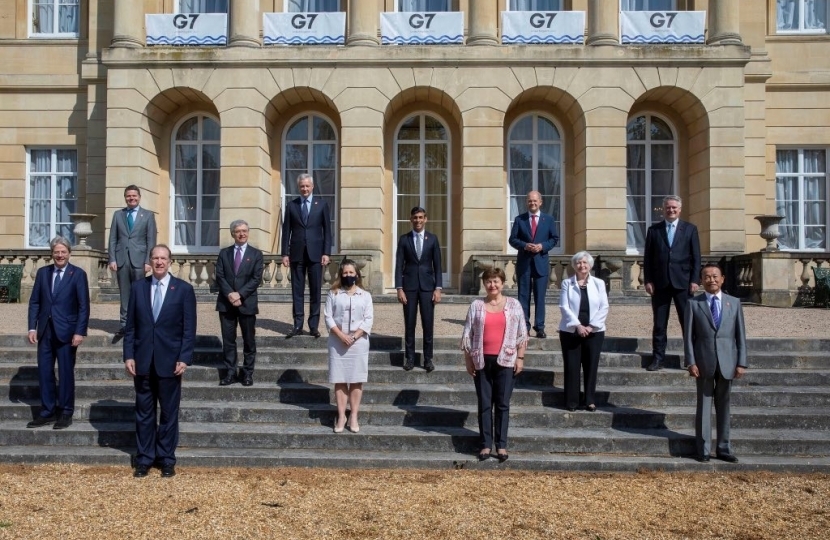
The global tax system needs to be fit for the digital age, and as hosts of the G7 we have been pushing for a new system that means that the right companies pay the right tax in the right places.
That is why, working with our G7 partners, this week the Chancellor agreed changes to create a new, fairer tax system fit for the 21st century, with a minimum global corporation tax and new rules to ensure that large global firms and tech giants pay a fair share of profits in the countries where they do business.
This historic agreement will pave the way towards a global economic recovery that works for everyone, with multinationals paying more towards our public services in the UK as we build back better.
We are creating a fairer financial system fit for the 21st century:
- Global firms will be required to pay tax in the countries where they operate – and not just where they have their headquarters. The rules would apply to the largest and most profitable multinationals with at least a 10 per cent profit margin – and would see 20 per cent of any profit above the 10 per cent margin reallocated and then subjected to tax in the countries they operate. The fairer system will mean the UK will raise more tax revenue from large multinationals and help pay for public services here in the UK.
- A global minimum corporation tax will tax 15 per cent of multinational’s profits. The G7 leaders agreed to the principle of a global minimum corporation tax of 15 per cent, operated on a country by country basis. That will ensure that multinationals pay at least 15 per cent of tax in each country they operate in and crack down on tax avoidance.
- Climate change will be embedded into global financial decisions as we transition towards net zero. G7 Partners have followed the UK’s lead by committing to embed climate change and biodiversity loss considerations into economic and financial decision-making, ensuring the global financial system plays its part transition to net zero. The UK was the first country in the world to commit to making climate disclosures mandatory in November 2020.
We are leading the way towards a global recovery:
- Playing a leading role as hosts of the G7 and COP26 as we recover from the coronavirus pandemic. We are using the UK’s presidency of the G7 and the COP 26 climate change conference to drive international action on global challenges like digital taxation, climate change, pandemic preparedness and girls’ education while promoting Britain’s interests and values abroad.
- Committing more than £548 million to the global COVAX initiative to ensure a global recovery. We remain committed to supporting the equitable access to vaccines worldwide as one of the largest donors to the COVAX facility with over £500 million already committed - helping to distribute 1.3 billion doses of coronavirus vaccine to 127 developing countries so far this year.
- Remaining one of the highest aid donors in the G7 – helping us continue to tackle poverty around the world. During a time when we need to prioritise jobs and public services, sticking rigidly to spending 0.7 per cent of our national income on overseas aid is difficult to justify to the British people. We will continue to meet our commitment to the world’s poorest, spending the equivalent of 0.5 per cent of GNI on overseas aid in 2021, allocating £10 billion in this Spending Review. Based on OECD data for 2020, the UK will be the third largest donor within the G7 as a percentage of GNI.
